Qatar's Chief Diplomat Says Working To Bring US, Iran Views Closer
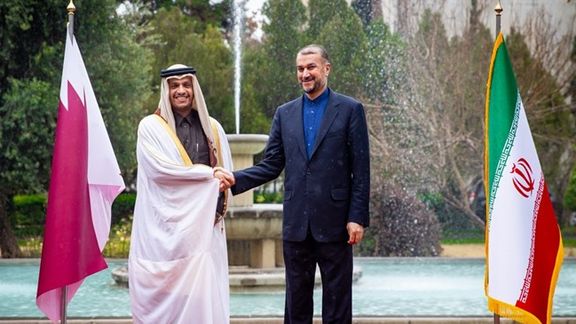
Qatar's foreign minister Sheikh Mohammed bin Abdulrahman Al-Thani has said his country is using its ties with Washington and Tehran to bring their views closer.

Qatar's foreign minister Sheikh Mohammed bin Abdulrahman Al-Thani has said his country is using its ties with Washington and Tehran to bring their views closer.
His remarks to Qatari-owned al Jazeera TV come after US president Joe Biden and Qatar's emir met in the Oval Office on Monday to discuss bilateral ties and pressing regional issues.
Al-Thani visited Iran on January 27, just days before the ruling emir's diplomatic visit to Washington and as efforts by Tehran and major powers to revive a 2015 nuclear pact enter a crucial time.
Iran’s official news agency IRNA, however, denied that the trip was related to US and Iranian relations. In a note headlined "Mistaken Interpretation Of Qatar Foreign Ministers' Visit," on the day of the visit IRNA spoke of “good and close relations” with Qatar but said “speculation” over “direct talks with the US in Vienna,” where multilateral talks to revive the 2015 deal, had “fuelled some misconceptions about the nature of the visit.”
Al-Thani welcomed Biden's promise to designate Qatar as a major non-NATO ally saying it reflected the strength of bilateral relations and opened up "partnership opportunities."
Qatar's emir Sheikh Tamim bin Hamad al-Thani ended his visit to Washington after sealing a Boeing freighter deal and meeting separately with Homeland Security Alejandro Mayorkas to discuss arms sales.
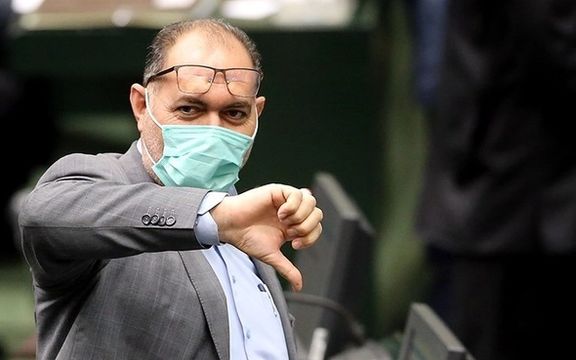
The Iranian parliament has suspended its public sessions because at least 47 lawmakers have come down with Covid-19 while about a dozen have been hospitalized.
Nezam Mousavi, a member of the presidium, said on Monday that 47 MPs and about 30 employees of the legislative body have tested positive for the coronavirus.
Mousavi did not say how many are in hospital but another member of the presidium, Alireza Salimi, had said on Sunday that 10 lawmakers have been hospitalized with complications.
According to senior lawmaker Mojtaba Yousefi, the public sessions on Tuesday and Wednesday were cancelled, except the two-hour sessions for the budget review committee.
He added that the parliament will hold its sessions in three different groups as of the next week.
Jalas Rashidi Kouchi, another lawmaker, on Sunday criticized parliament members who attended the Saturday session although they had tested positive for the virus.
“No justification is acceptable for endangering the health of others,” he said in a tweet.
Another outbreak among the MPs suspended the parliament for two weeks in April.
Since the start of the pandemic in Iran, several lawmakers and former MPS have died from the coronavirus.
Iran's Health Minister Bahram Einollahi announced the start of the sixth wave of the coronavirus pandemic on Thursday as hospitals report increasing number of referrals related to the highly infectious Omicron variant.
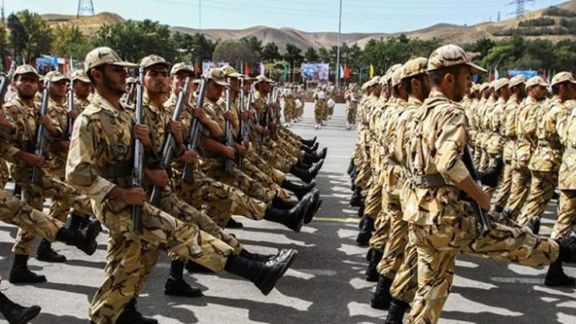
Following widespread criticism by citizens and officials, Iran canceled the buy-out scheme for compulsory military service, just one day after it was reported.
A member of parliament’s budget review committee, Ali Yazdikhah, told Fars news agency on Monday that the scheme was removed it from the budget bill due to the opposition by the General Staff of the Armed Forces.
He added that another plan that would exempt the conscription absentees who are over 30 years old have two children will be probably removed from the next year’s budget bill if it is disapproved by the authorities of the armed forces.
The new fees announced for the buy-out scheme that ranged between about $10,000 and $20,000had shocked people in Iran whose average salaries are less than $200 a month.
Many social media users had slammed the decision that would only be possible for the rich to afford, describing the commercialization of the military service as "discriminatory".
The option to buy out of the draft was removed from regulations about three years ago because even then only wealthy families could afford it for their sons through paying absence fines, which were about 11 to 24 times less than the new fees.
According to Iran’s constitution, all men over 18 years old must serve in the military for about two years otherwise they cannot apply for a passport to leave the country.
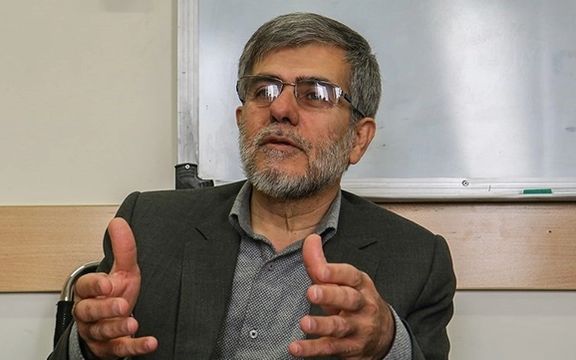
Iran's former nuclear chief Fereydoun Abbasi who is a hardliner member of parliament says it is not in Iran's interest to enter direct negotiations with US.
Abbasi’s comment comes as several lawmakers have lately supported the idea of holding direct talks with the United States,
Abbasi said in an interview with Asr Iran website, "holding direct talks with America is not in our interest as long as the United States has not acknowledged that Iran is a world power."
Critics mocked Abbasi for this statement on social media. Iranian Twitter user Mohammad Hossein Karimipour wrote in response: "A country whose military budget is less than 0.5% of the rest of the world and has no air force and a seaworthy naval force fit for the oceans, and a country that cannot have financial transactions with the world, cannot be a world power. This boastful gang suffering from delusions has taken the nation hostage!"
Other critics charged that true nature of individuals such as Abbasi will be revealed only if the Russian embassy in Tehran is seized, and secrets come out. This comment implicitly referred to the seizure of the US embassy in 1979 and documents discovered.
Another critic said "These individuals benefit from Iran’s current situation. They benefit from the lack of transparency and plunder taking place in the country."
Abbasi harshly criticizing the previous government said, "While the former nuclear negotiating team led by Foreign Minister Javad Zarif believed that I am an uneducated person, the current lead negotiator Ali Bagheri Kani usually comes to the parliament and speaks with me as an expert on the nuclear issue."
Abbasi also claimed that "in order to be able to get results in the nuclear negotiations, we first need to liberate the Golan heights at the Syrian-Israeli border."
Abbasi also claimed that the current negotiations in Vienna between Iran and world powers are not about the nuclear issue. All the negotiations have been already done and their outcome is the nuclear deal called the Joint Comprehensive Plan of Action (JCPOA), he said. He added that Iran's previous government failed to have the sanctions lifted although it had promised that with JCPOA economic restrictions would be removed.
"The current negotiations are about lifting the sanctions. There is no discussion about the nuclear issue. The dossier of the nuclear talks has been closed and the other side should now fulfil their commitments under the nuclear deal," Abbasi said, adding that "No other matter including discussions about the region, our exit from the region or the issue of Iran's missile programs can be discussed as part of the Vienna negotiations."
Abbasi reiterated that Iran will enter direct talks with the United States only after Washington “treats us in the same way it deals with Russia and China,” but if Washington wants to talk with Iran from a position of power without acknowledging it as a world power, it will not be in our interest to talk with the US.
Asked if an agreement made in Vienna needs to be ratified by the Majles (parliament), Abbasi said the legislature has already approved the JCPOA. The current negotiations are not over a new agreement.
Abbasi's statement about Iran respecting its commitments under the nuclear deal is contrary to facts on the ground that indicate Iran has more centrifuges than allowed by the JCPOA and has boosted Uranium enrichment far beyond the level allowed by the nuclear deal.
Abbasi also insisted that the JCPOA's opponents have not changed their mind. This comes while some hardliner members of the parliament, particularly at the National Security and Foreign Relations Committee have recently expressed support for direct talks with the United States.
Peyman Shahbaz, a Twitter user said Abbasi was overwhelmed by his own delusion and added jokingly that "Let him be a world power for two minutes!"
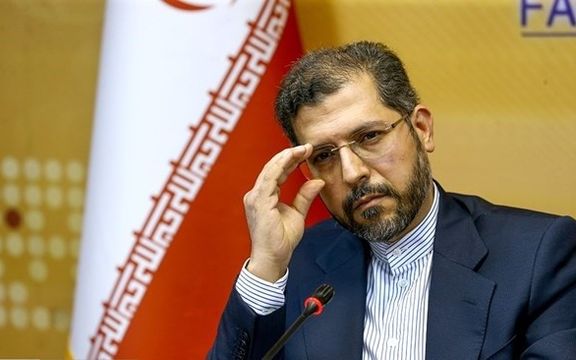
Iran’s Foreign Ministry has rejected Morocco’s claims that the Islamic Republic wants to infiltrate Africa and expand Shiite ideology on the continent.
Speaking at his weekly press conference on Monday, foreign ministry spokesman Saeed Khatibzadeh said the remarks by the Moroccan Foreign Minister Nasser Bourita are baseless, describing them as “unfounded projections”.
Last week, Bourita said that the Islamic Republic is threatening “the spiritual security of Africa" and vowed to stop Iran’s attempts to spread its influence on the continent.
"Iran plans to enter West Africa and to spread the Shia doctrine in the region," he said.
He also accused the Islamic Republic of supporting Yemen’s Houthis who regularly target Saudi Arabia and the UAE.
"Morocco’s support for what the state of Abu Dhabi in the United Arab Emirates has been subjected to is a clear message to denounce the abuses of the Houthis and the policy of Iran that stands behind them”, Bourita added.
Morocco severed diplomatic ties with Iran in 2018, saying the Tehran-backed Lebanese group Hezbollah was training Polisario Front separatist fighters against Morocco in Western Sahara.
Iran-backed Houthis have launched missile and drone attacks on three occasions against the UAE in January.
Many countries in the region accuse Iran of interference in the domestic affairs of its neighboring countries.
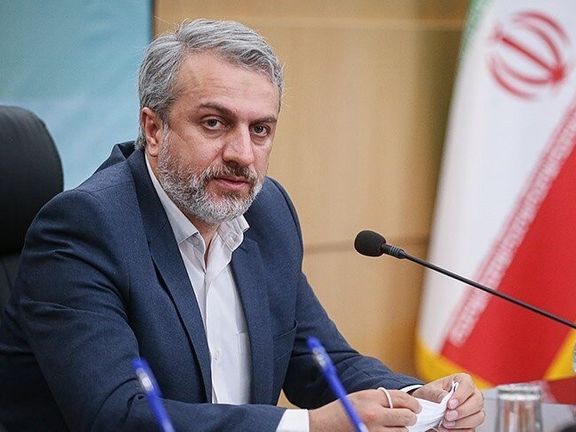
Iran will send a trade delegation to the United Arab Emirates next week, the Tehran Times said on Monday, although other media in Iran have not reported it.
The reported visit would come against a backdrop of Yemen's Iran-backed Houthi movement launching attacks on the UAE, the latest also on Monday.
The UAE has long been one of Iran's main links to the outside world, but the reimposition of sanctions by former U.S. President Donald Trump in 2018 halved bilateral trade to $7 billion in 2019 according to World Bank data.
Iran's Minister of Industry will visit the UAE with the economic delegation from February 6, the English-language government newspaper reported.
"During the three-day visit, Reza Fatemi-Amin will also meet with the UAE government and private sector officials to discuss economic and trade relations," it added.
"The trip has been organized in line with the Iranian government's plans for developing economic and trade diplomacy with countries in the region, especially Iran's southern neighbours."
The UAE government did not immediately respond to Reuters' request for comment on the report.
Despite Iran's continued support to the Houthis, Tehran and Abu Dhabi have tried to abate tensions.
In December, Sheikh Tahnoon bin Zayed al-Nahyan, the UAE's senior national security adviser, visited Iran and expressed hopes of a "turning point" in Iranian-UAE relations.